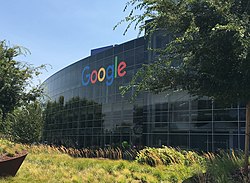How Does Google Make Money? Unveiling the Secrets of the Tech Giant

Hey everyone! Ever stopped to think about how Google, a company offering a universe of free services, manages to rake in billions? We're talking Gmail, YouTube, Google Maps – all free to use, yet Google's market cap is north of $2 trillion. Sounds like magic, right? Well, not quite. Let's dive into the fascinating world of Google's business model and uncover the secrets behind their financial success.
From Humble Beginnings to Global Domination
Believe it or not, Google started as a simple college project back in 1998. Larry Page and Sergey Brin, the masterminds behind it all, had a vision: organize the world's information and make it universally accessible and useful. And boy, did they succeed!
Remember the early days of the internet? Searching for information was like navigating a labyrinth. Google changed that with its sleek, user-friendly search engine. It quickly became the go-to destination for anyone looking for anything online. Today, "Googling" is synonymous with searching the internet – a testament to their dominance.
The Rise of Google Ads: A Game-Changer
In 2000, Google took a giant leap with the launch of AdWords, now known as Google Ads. This revolutionary system allowed businesses to pay for their ads to be displayed on Google's search results pages. This marked a pivotal moment, as it became the cornerstone of Google's revenue stream. We'll delve into the specifics later.
Expanding the Empire: From Search to Services
Over the years, Google's ambition extended beyond search, leading to the creation of a diverse portfolio of products and services. Gmail revolutionized email, Google Maps transformed navigation, and the acquisition of YouTube in 2006 gave them a foothold in the rapidly growing video-sharing platform.
And let's not forget Android, the mobile operating system powering billions of smartphones worldwide, and Google Chrome, the world's most popular web browser. They even ventured into hardware with Pixel smartphones, Chromebook laptops, and smart home devices. Talk about a tech titan!
The Art of Failure: A Stepping Stone to Success
Google's journey wasn't all sunshine and rainbows. Remember Google Plus? Their attempt to rival Facebook's social media dominance? Yeah, that didn't quite pan out. And then there was Google Hangouts, Google Nexus tablets, Google Podcasts – all promising ventures that ultimately met their demise.
But here's a crucial takeaway: "Failure is the mother of all successes." Google's willingness to experiment, even if it meant facing setbacks, ultimately paved the way for their monumental triumphs.
Google's Money-Making Machine: Unveiling the Revenue Streams
So, how does Google actually generate revenue? Let's break down the numbers, shall we? In 2022, Google raked in a whopping $280 billion. Here's where the money comes from:
- Google Search Ads: The undisputed champion! A staggering 58% of Google's revenue ($162 billion) comes from ads displayed alongside search results.
- Google Network Ads: These are the ads you see on various websites that partner with Google, generating $32.78 billion in revenue.
- YouTube Ads: Yes, those ads you (sometimes impatiently) watch before your favorite YouTube videos contribute a significant $29 billion to Google's coffers.
- Google Play Store and Hardware: Revenue from app sales on the Google Play Store, along with sales of Pixel phones, Chromebooks, and other hardware, adds another $29 billion to their bottom line.
- Google Cloud: This cloud computing service has emerged as a major player, bringing in $26 billion in 2022.
The "Free" Lunch: How Google Makes Money from Free Services
This is where things get really interesting. How can a company offering a plethora of free services be so profitable? Two words: Freemium Model.
Think of it like this: Google provides basic services for free, but if you crave premium features or want an ad-free experience, you'll have to open your wallet. Gmail and Google Drive offer free storage up to a certain limit, after which you'll need a paid subscription. YouTube Premium removes ads and unlocks exclusive content.
The beauty of the freemium model? It allows users to try before they buy. However, the real kicker for Google is that the vast majority of users stick with the free versions, happily coexisting with ads.
Data: The Fuel Powering Google's Advertising Engine
Here's the other side of the coin: data collection. Every search query, every YouTube video watched, every email sent – it all paints a detailed picture of our online behavior. This treasure trove of data, anonymized of course, is the lifeblood of Google's targeted advertising.
Ever noticed how ads seem eerily relevant to your recent searches or interests? That's Google's sophisticated machine learning algorithms at work. They analyze your data to determine your age, location, interests, and even purchase history, allowing advertisers to laser-target their ads to the most receptive audience.
The Future of Search: Challenges and Opportunities
While Google's advertising-driven model has reigned supreme for over two decades, cracks are beginning to show. Privacy concerns are mounting as users become more aware of the vast amounts of data collected. This, coupled with ad fatigue and the rise of AI-powered chatbots like ChatGPT, poses a potential threat to Google's dominance.
ChatGPT and its ilk offer a fundamentally different search experience – one where concise, ad-free answers are readily available. This challenges Google's core value proposition and forces them to innovate and adapt.
The Bottom Line: Competition Breeds Innovation
The future of internet search is in flux. However, one thing's for sure: this fierce competition ultimately benefits us, the users. As Google, Microsoft, and other tech giants vie for our attention, we can expect even more innovative and sophisticated products and services.
The digital landscape is constantly evolving, and it will be fascinating to witness how Google navigates these challenges and maintains its position as a tech titan in the years to come.
Reference:
Watch a video to learn more about how Google makes money.

